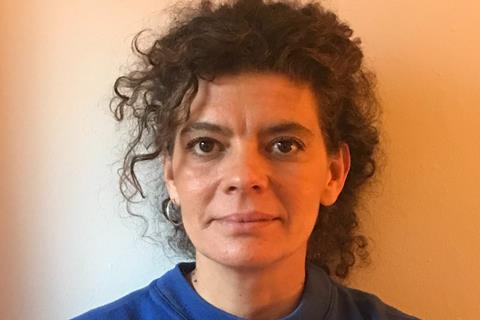
Joana Cunha Ferreira is coordinator of the fifth edition of Nebulae, the wide-ranging industry programme of Lisbon’s docmentary festival Doclisboa.
Among the many initiatives she is overseeing this year is a contingent of Finnish filmmakers who are bringing their documentary projects to Lisbon, a new venture with near-neighbour Spain, a second edition of ’Jumpgate’, which brings veteran producers and relative newcomers together in the hope they can learn from each other, and a visit to the National Film Archive.
Cunha Ferreira talks with Screen what the international industry can expect from this year’s programme.
Why have you chosen Finland as a partner this year?
When we opened the call for projects with the Finnish Film Foundation, we were all very nervous about what kind of projects might be submitted. Finland is so far away from us. That was the interesting and exciting bit of this connection between Portugal and Finland, to be able to know them, a very north European country. We received a lot of projects. We chose eight, all of them quite different.
Which ones stood out to you?
There is an extraordinary project called Showtime In Helsinki, directed by Arthur Franck, about a “Cold War three -day extravaganza” as the director calls it, when 35 leaders of the world united in Helsinki in 1975. It was all shot by public TV, second by second and includes footage of [Leonid] Brezhnev [then leader of the Soviet Union]. The director will do something really brilliant with that archival material.
There is also director called John Webster who has a very different project. He is coming to Lisbon to show Burnt Earth, his project about forest fires. He is shooting in Portugal because we have a lot of those fires in the summer.
Is there then a chance for Portuguese producers to collaborate more with their Finnish counterparts?
I am sending the dossier of the Finnish projects to the Portuguese producers I know are used to coproduction. Let’s see what happens. With a project like Burnt Earth, it is quite easy to imagine a Portuguese producer would be interested because almost all of the shooting will be done in Portugal.
The other projects are very interesting as well. We have some Finnish arthouse projects as well including Snowline from Sanni Priha, about snowflakes. And there are a lot of films about climate change.
You are hosting the second edition of Jumpgate, your summit for European producers. Is it now a permanent fixture?
I think it will be. We have room to improve and imagine how it could be better. Jumpgate is a safe place for producers. It has 10 emerging producers and 20 senior producers. The main idea is to leave them alone so a really frank, open discussion can be had, between young producers who don’t know how to deal with some stuff and older producers might feel they’re losing touch. It has a lot to do with dialogue, conversation and openness.
The reactions last year were great from everyone who took part. Good things came out of it, partnerships and friendships.
Nebukae is bringing four Spanish documentary projects to Nebulae through a partnership with the ICAA. Spain’s Film and Audiovisual Arts Institute. How are relations between Spain and Portugal when it comes to film?
It’s a very interesting question that has been going on for…900 years! We share this peninsula, this geographical territory, but for some very strange reason, we are not as close as we should be. The opportunity appeared for us when ICAA showed interest in knowing us. And we showed interest in knowing ICAA. We’ve been flirting with each other to see what we can do together. This little thing, we can see how it goes.
Can you please explain a little about the festival’s Joaquin Jordà Residencies that support essayistic documentary? Are the 2022 participants attending this year’s festival?
It’s a joint initiative between Doclisboa, the Reina Sofía Museum and FIDMarseille to give opportunities to filmmakers and artists working on essay and experimental documentaries to develop, research and fund their works. Those winning the grants spend time at residencies in Madrid at the Reina Sofia and then take part in FIDLAB in Marseilles and attend Doclisboa.The 2022 grantees, Argentina’s Leandro Listorti (A Certain Civilisation), and Elise Florenty and Marcel Türkowsky, from France and Germany respectivley (In Search of the Boojum) will be in Lisbon to talk about their work.
Why is Nebulae organising for 40 delegates to visit the National Archive of Moving Images (ANIM) this year?
ANIM gave a big grant to scan a lot of films. When that happened, treasures kept appearing. It is also to let the world know what is in that archive. At Doclisboa, we have a big tradition of filmmakers that deal with archive. It seemed appropriate that Doclisboa could be a window for [looking into] what is hidden in the Portuguese film archive. It has a lot of wonderful stuff.

























No comments yet